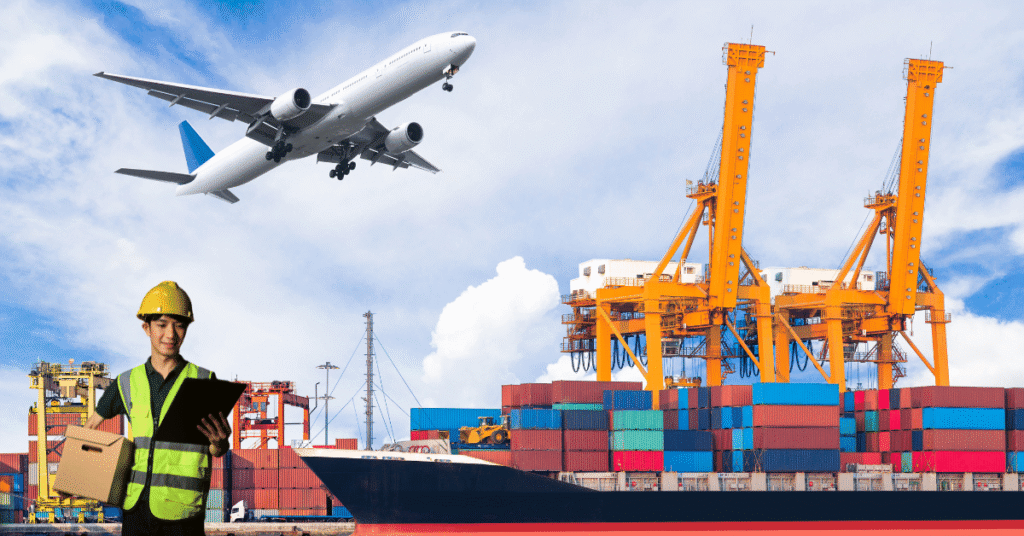Organizations that deal with moving logistics are indeed very fast, efficient, and reliable in transporting goods across the world today. So what is a logistics company, and in what sense is it important for commerce today?
What Is a Logistics Company?
A logistics company is a specialized organization that manages the complex process of transporting, storing, and delivering goods, materials, or information throughout the supply chain. These companies ensure that products move efficiently from suppliers to manufacturers, warehouses, retailers, or directly to customers.
In today’s global economy, logistics companies are the backbone of commerce, helping businesses fulfill customer orders accurately, cost-effectively, and on time.
Key Functions of a Logistics Company
1. Transporting
Transportation is arranging movement of goods by truck, rail, air, and sea. Further coordination of domestic and international shipment deliveries without fail and more timely.
2. Storage
The majority of logistics companies also store the commodities until they are needed for distribution.
3. Management of Inventory
Stock levels, reorder points, and product locations are ensured so that optimization of inventory occurs by incurring lower costs and preventing overstock or shortages.
4. Order Fulfillment
All the processes entailed in order-wrapping from picking, packing, and dispatch, as well as the returns process, are carried out by a logistics firm on behalf of its clients in e-commerce and retail.
5. Customs and Compliance
Logistics providers handle clear custom processing in international moving of goods, documentation handling, and compliance in worldwide trade.
6. Supply Chain Optimization
Some of the top logistics companies are currently providing extensive consultation and data analysis to elevate their performance within their supply chains.
Types of Logistics Companies
- Freight Forwarders – Arrange transportation and handle shipping logistics.
- Third-Party Logistics (3PL) Providers – Offer outsourced logistics services, including transportation, warehousing, and fulfillment.
- Courier Companies – Focus on small parcel delivery and last-mile logistics.
- Carriers – Own and operate vehicles (trucks, ships, planes).
- Cold Chain Logistics – Specializes in temperature-sensitive goods like food or pharmaceuticals.
Importance of a Logistics Company
- Marketing network: These companies help in promoting marketing programs and products in new markets.
- Cheap: Companies save costs through outsourcing such services and concentrate on their core competencies.
- Customer Satisfaction: On-time delivery, accurate shipment, and real-time tracking add value to customer experience.
- Scalability: Logistics partners can meet rising demand and peaks in seasons.
Modern Trends in the Logistics Industry

- Automation & Robotics: Use of autonomous vehicles, drones, and robots in warehouses.
- AI & Predictive Analytics: Improving demand forecasting and supply chain decision-making.
- Sustainability: Green logistics, carbon-neutral shipping, and electric delivery vehicles.
- Blockchain: Enhancing transparency in supply chains.
- IoT & Real-time Tracking: GPS and smart sensors for real-time visibility of shipments.
Conclusion
Logistics companies are invaluable partners in the transportation of goods related to any business. Whether a small retailer selling items over the internet, or a whole manufacturer needs logistics providers to provide them with the necessary tools, expertise, and infrastructure required to keep the supply chain flowing. The demand for logistics companies will only continue to grow in importance as future trade becomes more globalized.
Frequently Asked Questions about Logistics Companies
Q1. Which sectors have logistics companies?
A1. Almost all the sectors use logistics companies such as retail, manufacturing, healthcare, food and beverages, automotive, and e-commerce, among many others.
Q2: How do logistics companies make their gains?
A3: Most of the income is generated through charges from transportation, storage, and packaging, as well as from value-adding services such as supply chain consulting.
Q4: Do small businesses require logistics companies?
A4: Yes, it can help very much, especially if they do online shopping or sell to different sites. Small businesses are being promoted by logistics firms without being hard-pressed about shipping and storage.
Q5: Can such logistics companies find where my consignments are?
A5: Not at all. To every culture of modern-day elite logistics providers almost all around the world, real-time tracking files would create a very effective bureaucratic safety net.



